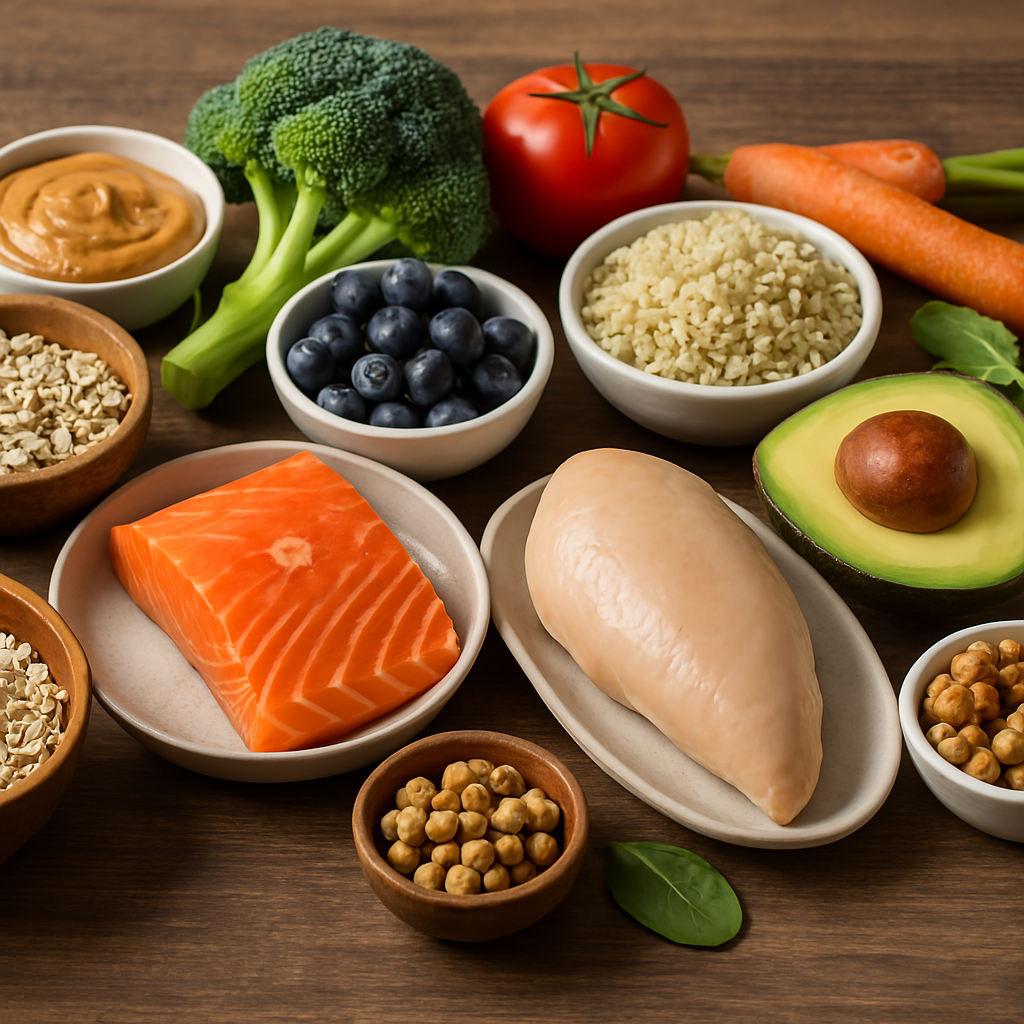In the world of fast food, conflicting diet advice, and constant stimulation, it has become harder than ever to distinguish between what’s “healthy” and what’s simply marketed as such. Nutrition has evolved from being a matter of survival to becoming one of the most powerful tools of self-mastery — and also, unfortunately, one of the most misunderstood.
Many people associate nutrition with calorie counting, macros, or temporary diets. But truly intelligent nutrition is not just about what we eat, but also when, why, and how. The body is not a calculator — it’s a dynamic, adaptive biological system that interacts with food in real-time to regulate mood, energy, metabolism, cognition, and cellular repair.
🧠 Nutrition as Information, Not Just Fuel
Everything we consume sends a chemical message to the body. Macronutrients — carbohydrates, fats, and proteins — act as substrates, but also as signals. Micronutrients — like zinc, magnesium, iodine, B-vitamins — serve as co-factors in hundreds of enzymatic processes.
For instance:
- A high-protein breakfast increases satiety and dopamine production, improving morning focus.
- Omega-3 fatty acids influence membrane fluidity and anti-inflammatory gene expression.
- Polyphenols in berries activate protective antioxidant pathways that guard against aging.
Food is more than calories. It’s data. It shapes hormonal signaling, neurotransmitter balance, and gene expression.
🔁 Blood Sugar and Energy Stability
Perhaps the most practical example of nutritional intelligence is glycemic regulation — managing how foods impact blood sugar. Most modern diets are rich in refined carbs and sugars, causing spikes and crashes that impact energy, cravings, and mental clarity.
Symptoms of poor blood sugar balance include:
- Mid-day fatigue (especially after lunch)
- Irritability or brain fog before meals
- Unstable hunger and emotional eating
By prioritizing low-glycemic whole foods, pairing carbs with fiber, fat, or protein, and avoiding high-fructose processed products, we can drastically improve metabolic flexibility — the body’s ability to switch between energy sources (glucose and fat) efficiently.
⏱️ Meal Timing and Circadian Alignment
It’s not only what you eat — when you eat matters too. Our bodies follow a circadian rhythm, governed by light and darkness, but also influenced by food intake. Eating late at night disrupts melatonin release, impacts sleep quality, and alters insulin sensitivity.
Intermittent fasting (e.g., 14:10 or 16:8 protocols) has shown evidence in:
- Improving insulin resistance
- Enhancing mitochondrial function
- Stimulating autophagy (cellular “clean-up”)
However, fasting is not for everyone. The goal is metabolic efficiency, not deprivation. A nutrition plan aligned with your chronotype and lifestyle is more sustainable than following a strict online template.
🌱 Whole Foods vs Processed: The Hidden Cost of Convenience
Modern diets are increasingly based on ultra-processed foods — items with more than five ingredients, often including artificial sweeteners, preservatives, and emulsifiers. These have been linked to:
- Gut dysbiosis (microbiome imbalance)
- Increased inflammation
- Poor nutrient absorption
Whole foods — vegetables, legumes, lean proteins, fruits, seeds, and healthy fats — provide nutrient density, which helps regulate appetite and supports long-term health. It’s not about “eating clean” 100% of the time, but about making these foods the default, not the exception.
💧 Hydration and Mineral Balance
Most people live in a state of chronic dehydration, mistaking thirst for hunger or fatigue. Even a 2% drop in hydration levels reduces cognitive function, reaction time, and physical performance.
But hydration is not just water — it’s water plus minerals. Sodium, potassium, magnesium, and chloride regulate:
- Cellular hydration
- Nerve conduction
- Muscle contractions
Overhydration with plain water, without electrolyte intake, can lead to hyponatremia, especially in athletes. Strategic hydration includes filtered water, sea salt, and mineral-rich vegetables.
🧩 Nutrition and Mental Health
The gut-brain axis is now a well-established field. What we eat influences not just physical energy but also emotional stability. Nutrients like B6, B12, folate, magnesium, and tryptophan are essential for serotonin and dopamine production — neurotransmitters that shape mood, focus, and motivation.
Poor nutrition, especially high sugar and processed fats, has been linked to:
- Higher rates of depression and anxiety
- Poor sleep and circadian disruption
- Increased neuroinflammation
A well-balanced, anti-inflammatory diet improves mental resilience and cognitive clarity.
🧠 From Restriction to Empowerment
Perhaps the most radical idea in modern nutrition is this: your relationship with food mirrors your relationship with yourself. People who eat mindfully, with awareness and gratitude, tend to develop not only better habits, but a healthier self-image and emotional regulation.
You don’t need to obsess over every meal or follow trendy rules. Instead, focus on consistency over perfection, intention over impulse, and education over imitation.
🔚 Final Thought
True nutrition is not about dieting. It’s about nutritional intelligence — learning to listen to your body, understand your environment, and make decisions based on knowledge, not trends.
It’s not about looking a certain way. It’s about feeling strong, calm, clear, and vital — every day.
And that starts with the next conscious bite.


